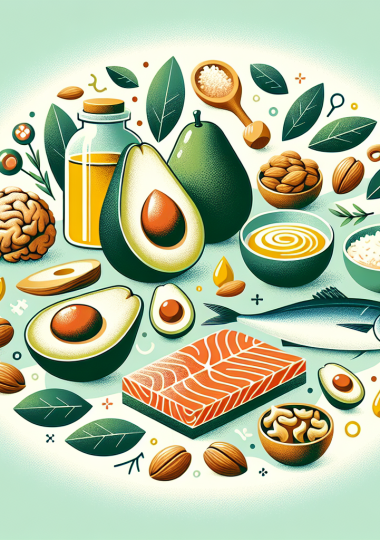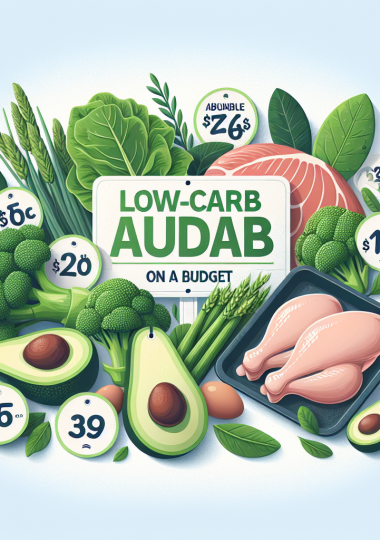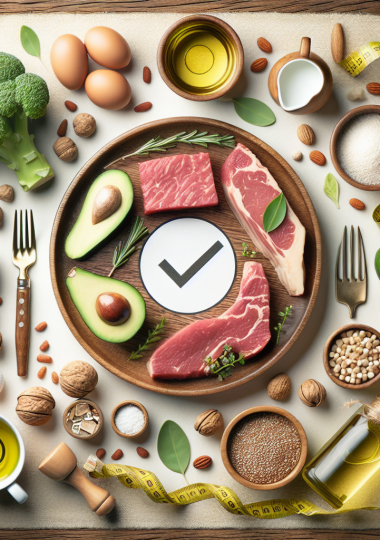Introduction to the Ketogenic Diet
The ketogenic diet, commonly known as the keto diet, is a high-fat, low-carbohydrate eating plan that has gained popularity for its potential benefits in weight loss and overall health improvement. By drastically reducing carbohydrate intake and replacing it with fats, the body enters a metabolic state called ketosis. In ketosis, the body becomes incredibly efficient at burning fat for energy instead of carbohydrates. However, achieving and maintaining ketosis requires careful planning and food selection. This article explores the top foods to avoid for keto success, ensuring your journey towards better health is as effective as possible.
Understanding Carbohydrates and Their Role
Carbohydrates are one of the body’s primary sources of energy. When consumed, they are broken down into glucose, which is used by cells for fuel. On a ketogenic diet, the goal is to limit carbohydrate intake to a level low enough to enter and sustain ketosis. Typically, this means consuming about 20-50 grams of net carbs per day. To stay within this limit, it’s crucial to avoid foods high in carbohydrates, especially those with little nutritional value.
High-Carbohydrate Foods to Avoid
Bread and Grains
Bread, pasta, rice, and grains like quinoa and oats are high in carbohydrates and should be avoided on a keto diet. Even whole grain varieties, often considered healthier, contain enough carbs to potentially disrupt ketosis. Instead, opt for alternatives like almond flour or coconut flour to create keto-friendly bread and baked goods.
Starchy Vegetables
While vegetables are generally considered healthy, some, like potatoes, sweet potatoes, and corn, are high in starch and carbohydrates. These should be avoided or consumed in minimal amounts on a ketogenic diet. Focus on consuming non-starchy vegetables like leafy greens, broccoli, and cauliflower, which are low in carbs and rich in nutrients.
Fruits High in Sugar
Fruits are naturally high in sugar and carbohydrates, making them unsuitable for a strict keto diet. Bananas, apples, grapes, and mangoes are examples of fruits that can quickly increase your carb intake. Berries such as strawberries, blueberries, and raspberries are lower in carbs and can be enjoyed in moderation.
Legumes
Legumes, including beans, lentils, and chickpeas, are rich in carbohydrates. While they are a great source of protein and fiber, they can interfere with ketosis. If you’re following a keto diet, it’s best to avoid these foods and seek alternative sources of protein such as meat, fish, and eggs.
Sugar and Sweetened Products
Sugar and Sugar Substitutes
Sugar is a carbohydrate that can quickly increase your daily carb count, making it challenging to stay in ketosis. Avoid table sugar, brown sugar, and even natural sweeteners like honey and maple syrup. When a sweet craving strikes, turn to keto-friendly sweeteners such as stevia, erythritol, or monk fruit.
Sugar-Sweetened Beverages
Soft drinks, energy drinks, and even fruit juices are loaded with sugars. These beverages can add a significant amount of carbohydrates to your diet, often without providing any nutritional benefits. Water, sparkling water, and unsweetened tea or coffee are better beverage choices on a keto diet.
Processed Snacks and Desserts
Many processed snacks, such as cookies, candies, and cakes, are high in sugars and refined carbs. These foods offer little nutritional value and can quickly derail your keto efforts. Instead, consider preparing your own keto-friendly snacks using low-carb ingredients like nuts and seeds.
Hidden Carbohydrate Sources
Condiments and Sauces
Many condiments and sauces, such as ketchup, barbecue sauce, and salad dressings, contain hidden sugars and carbs. It’s essential to read labels carefully and choose low-carb alternatives or make your own sauces at home using keto-friendly ingredients.
Pre-packaged and Processed Foods
Pre-packaged foods often contain hidden carbs in the form of added sugars and starches. Processed foods like deli meats and ready-to-eat meals may contain fillers and preservatives that are carb-heavy. Opt for whole, unprocessed foods wherever possible to minimize hidden carbs.
Alcohol
Alcohol can be a hidden source of carbohydrates, particularly in sweetened or flavored alcoholic drinks. Beer and sugary cocktails are especially high in carbs. If you choose to drink alcohol, opt for spirits like vodka or whiskey, and use sugar-free mixers. Always consume alcohol in moderation and be aware of its impact on ketosis.
Tips for Success on a Keto Diet
Plan Your Meals
Successful adherence to a keto diet requires careful meal planning. Plan your meals and snacks in advance to ensure you’re meeting your macronutrient goals without exceeding your carb limit. Consider using a food tracking app to monitor your daily intake of carbohydrates, fats, and proteins.
Read Food Labels
Always check food labels for hidden carbohydrates, especially in processed foods. Ingredients are listed in order of quantity, so be wary of foods where sugar or high-carb ingredients appear at the beginning of the list.
Focus on Whole Foods
A diet rich in whole, unprocessed foods will naturally be lower in carbohydrates. Focus on high-quality fats, moderate protein, and plenty of non-starchy vegetables. This approach not only supports ketosis but also promotes overall health and well-being.
Stay Hydrated
Adequate hydration is crucial on a keto diet, as your body will excrete more water and electrolytes during ketosis. Drink plenty of water throughout the day and consider adding electrolyte supplements if needed.
Conclusion
Achieving success on a ketogenic diet requires diligence in selecting the right foods and avoiding those that can sabotage your efforts. By steering clear of high-carb foods, sugary products, and hidden carbohydrate sources, you can maintain ketosis and reap the benefits of this popular diet. Remember, focus on whole, nutrient-dense foods, plan your meals carefully, and stay hydrated to ensure a successful keto journey. With these strategies, you’ll be well on your way to achieving your health and weight loss goals on the ketogenic diet.









Add comment